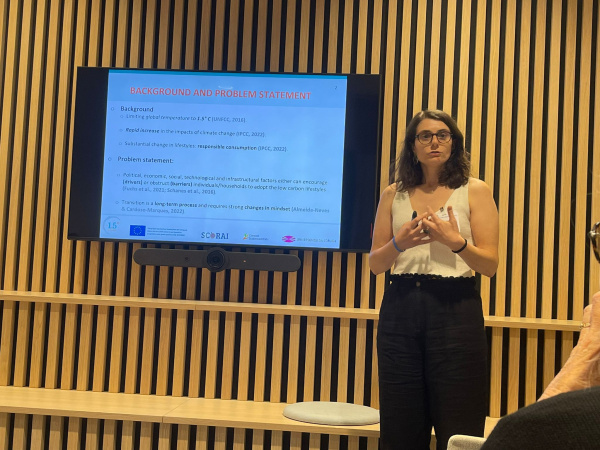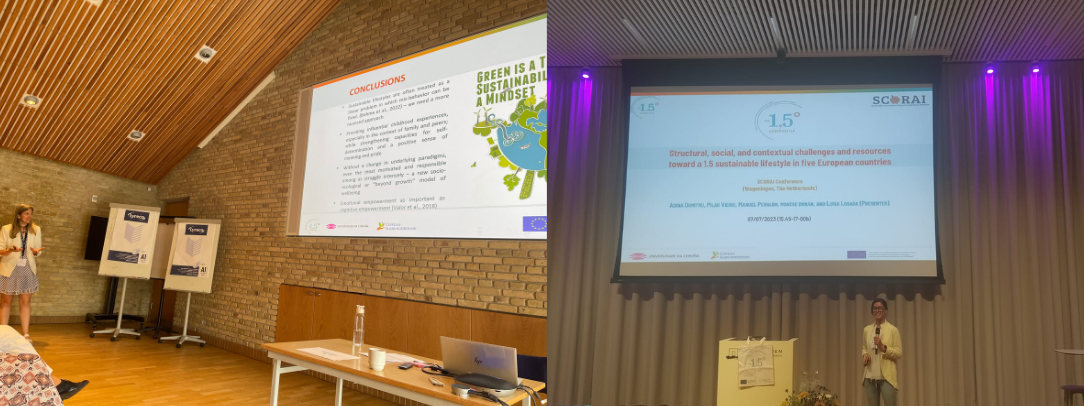
This summer has been quite productive for the EU 1.5° Lifestyles project team. Our colleagues from the University of A Coruña (UDC) Adina Claudia Dumitru, Luisa Losada Puente and Nadin Ozcelik presented some of our research findings. Adina and Luisa presented the main findings on motivations, contextual resources and challenges for adopting a 1.5° lifestyle in five case countries in Europe, co-authored by Manuel Peralbo, Montse Durán and Pilar Vieiro, at the International Conference on Environmental Psychology (ICEP) in Aarhus, Denmark, on 22 June 2023 and at the 5th SCORAI conference in Wageningen, Netherlands, on 6 July 2023. In the latter, on 8 July 2023, Nadin presented the main findings of the Spanish expert interviews and Stakeholder Thinking Lab on the structural drivers and barriers for low-carbon lifestyles in Spain, which is co-authored by Marta Rey-García and Vanessa Mato-Santiso at the 5th SCORAI conference.
During their presentation, Adina and Luisa gave a brief account, through the voices of people who have adopted low-carbon lifestyles, of what it has meant for them to change their lifestyles and what the main drivers of these changes are. Individual motivations, such as autonomy or sufficiency, and environmental motivations, related to connection with nature, were highlighted. Also relevant were individual knowledge and awareness, and a sense of community belonging and responsibility. Internal-psychological (e.g. internal conflicts, convenience and comfort) and external barriers (economic, infrastructural, legal and social) were identified, as well as the internal (e.g. self-determination, desire for simplicity, pride) and external (highlighting social support) resources with which they cope with the above.
They provided additional evidence of the positive impact on individual health and well-being. They concluded their presentation with some recommendations, pointing out that sustainable lifestyles require a more nuanced approach and new paradigms, such as a Beyond Growth model, to develop alternative concepts of well-being. Emotional empowerment is also essential in promoting sustainability.

Meanwhile, Nadin, together with Marta and Vanessa, presented the importance of identifying structural drivers and barriers at the local level for achieving sustainability transitions. They then highlighted the main structural drivers, i.e. a holistic and consistent policy framework, and barriers, i.e. lack of adequate infrastructure, in the four main consumption domains: nutrition, mobility, housing and leisure. They concluded their presentation by identifying key levers for decision-makers, such as promoting education on sustainable practices, economic incentives and internalisation of environmental costs, as well as supporting circular economy business models for the adoption of low-carbon lifestyles.
You can find the presentations to all EU 1.5° Lifestyles contributions to SCORAI 2023 here.
Adina Dumitru, Luisa Losada Puente and Nadin Ozcelik, University of A Coruña
Source of pictures: UDC

